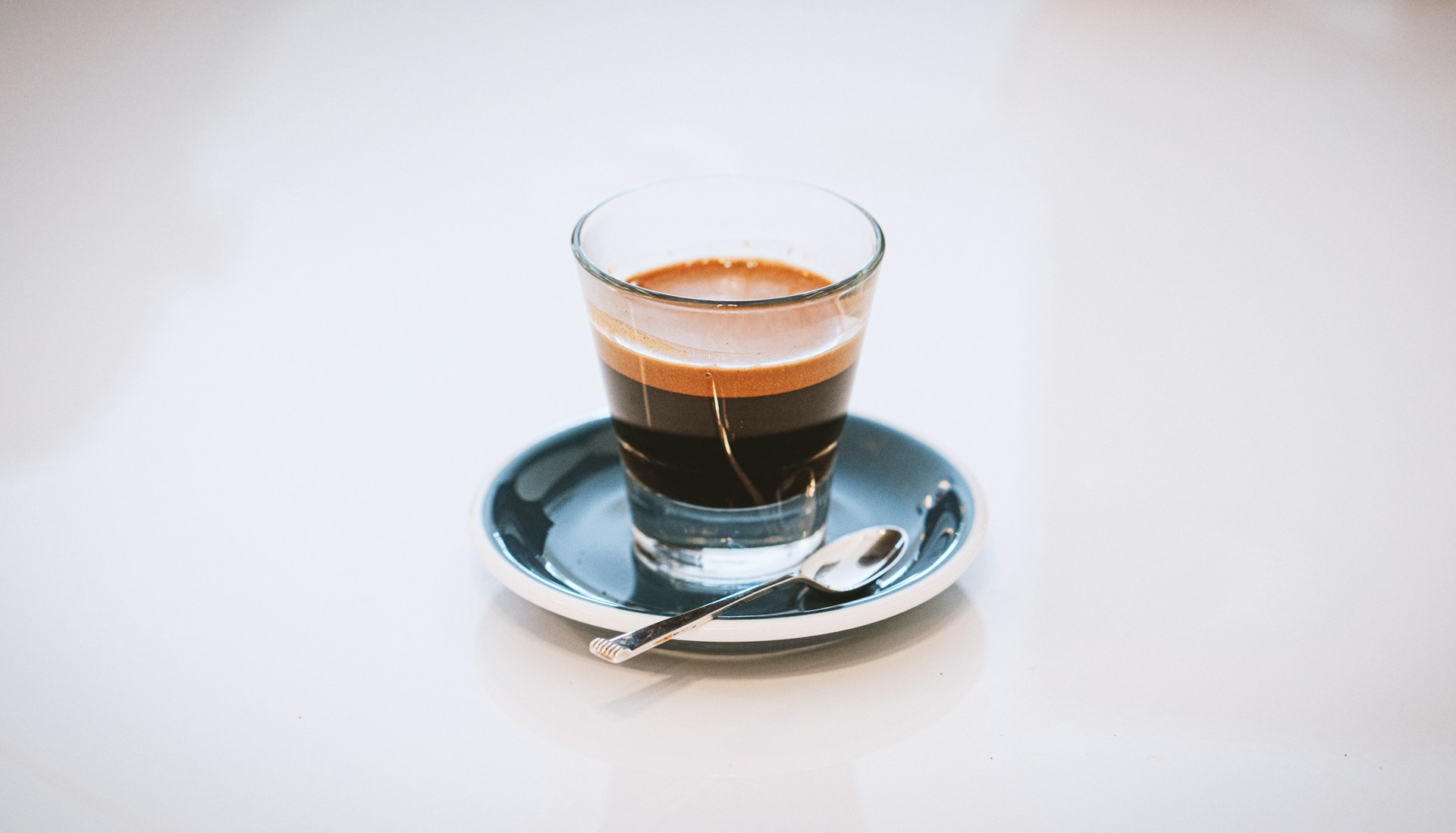Studies and news headlines every other day seem to alternate between the positive and negative effects of drinking coffee, leaving many coffee drinkers confused. But few headlines examine espresso specifically. Espresso is a delicious concentrated form of coffee and is a personal favorite of mine. But how does the caffeine in espresso affect you? Is espresso bad for you?
I spoke with Ashley L. Madsen, PA-C, HHC, ABAAHP, Clinical Director of Ethos Aesthetics + Wellness, to learn how drinking espresso affects our health. Madsen shared her thoughts on “Is espresso bad for you?” along with some insight backed by medical research. Here’s what she had to say.
Is espresso bad for you?

According to Madsen, “It’s not a question if espresso is necessarily good or bad for you. It depends on how you drink espresso. Espresso can be a powerful tool for health when consumed strategically and responsibly in moderation. The biggest factors to consider when looking at how espresso impacts your health are the timing of consumption, genetics, and quantity.” Just like with the question “Is coffee bad for you?” the health benefits and risks are directly related to the quantity and timing of coffee consumption.
“While espresso can offer numerous health benefits, from improved cognitive function to enhanced metabolic rate, it’s important to individualize your intake based on genetics, lifestyle, and overall health goals. And, of course, remember to always consult a healthcare provider if you have concerns about caffeine and its effects on your body,” Madsen says.
How caffeine affects your health

While drinking espresso in moderation is generally safe, the concern arises more for those who drink espresso excessively. Espresso is not necessarily bad for you, but too much of it can be.
Madsen shares that the excess consumption of espresso leads to ” increased cortisol levels, or stress levels, which can cause lots of health issues from weight gain to high blood pressure and bone loss. Then there’s the issue of sleep disruption – again, where timing comes into play. ”
Since caffeine has a half-life of 5-6 hours, even drinking an espresso at 3 pm could still affect a person’s ability to fall (and stay) asleep at 9 to 10 pm. Additionally, she warns that caffeine ” can potentially exacerbate anxiety and heart palpitations in sensitive individuals.”
Switching to decaf espresso
I know I’m guilty of drinking espresso late in the day, but I have recently switched to decaf espresso for an afternoon treat. Madsen encourages espresso lovers to make the switch, especially if you prefer to drink espresso in the afternoon. It’s as simple as ordering a decaf latte or cappuccino or opting for a half-decaf option.
“Decaffeinated espresso retains many of the beneficial polyphenols, antioxidants, and diterpenes found in regular espresso, but without the stimulating effects of caffeine. This can benefit those with caffeine sensitivity or anxiety, who want to avoid overstimulation, late-day coffee drinkers who want to prevent sleep disruption, and slow caffeine metabolizers who experience prolonged effects from regular espresso,” she says.
Health benefits of drinking espresso

No question drinking too much espresso is terrible for you. However, drinking espresso in moderation has many health advantages worth considering. Madsen shared some of the recent research that found that regular coffee consumption may be linked to a lower risk of prostate cancer. A meta-analysis in BMJ Open (2021) found that men who drank more coffee had a 9% reduced risk of prostate cancer, potentially due to antioxidants and anti-inflammatory compounds in coffee.
Beyond prostate health, other studies have found that those who regularly consume espresso may also be at a lower risk for neurodegenerative diseases such as Parkinson’s Disease and Alzheimer’s. Researchers believe this potential benefit is thanks to the caffeine and polyphenols in coffee that help enhance the “cellular cleanup processes in the brain,” thereby reducing plaque accumulation. Lastly, consuming espresso or coffee (about 2 to 3 cups daily) may also help reduce the risk of heart disease.
When and how to drink espresso safely

Even if I discovered espresso was terrible for me, I don’t think I could stop drinking it. However, there’s no need to stop drinking espresso (and all of your favorite espresso-based beverages). Instead, please pay close attention to how much espresso you consume and when. Madsen recommends drinking espresso in the morning after cortisol naturally rises. She recommends consuming 100 to 200 mg of caffeine (such as in one to two shots of espresso) about one to two hours after waking.
Timing your espresso consumption after waking is ideal for “blocking adenosine without disrupting natural cortisol rhythms. It may seem counterintuitive, but you want to avoid consuming caffeine immediately after waking up. If you do, it may dull the body’s natural cortisol peak, which reduces its effectiveness as an energy booster. To state the obvious, you should avoid caffeine in the evening, as it can disrupt sleep, an essential factor in overall health,” Madsen says.




